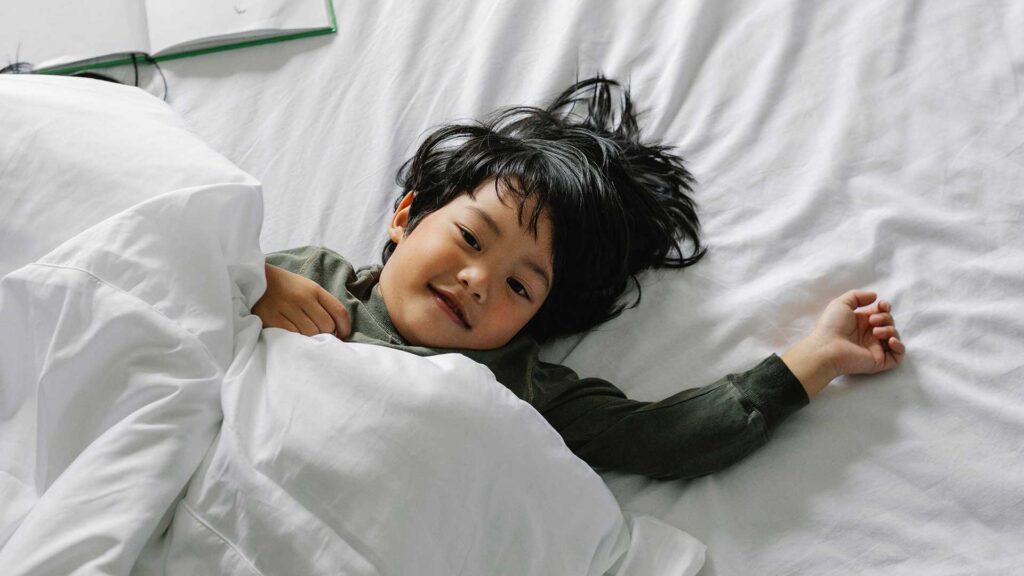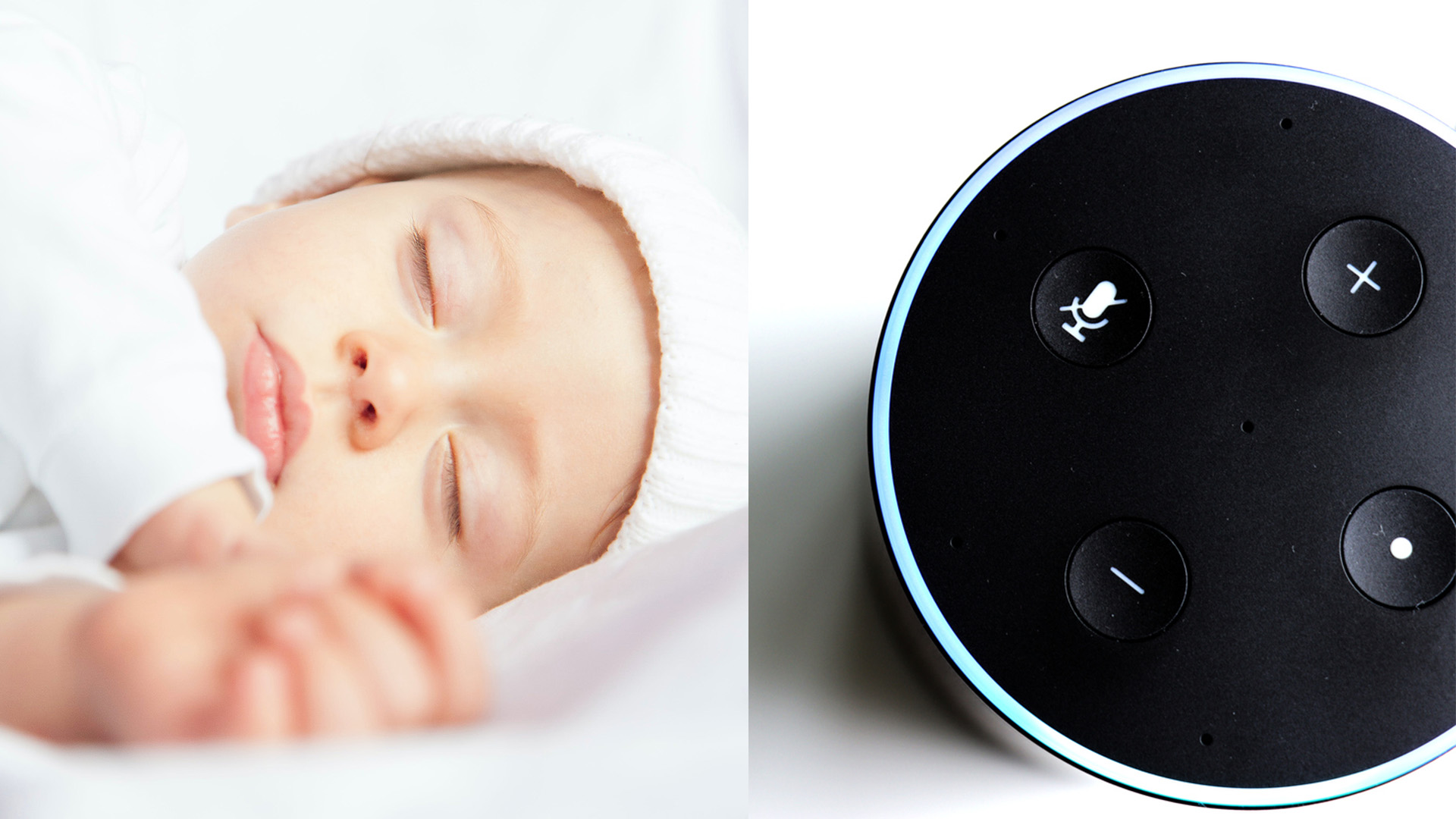
The link between sleep and mood has been researched at length, but a new study specifically looks at how nighttime difficulties may affect young children’s behavior in school. The study, published in JAMA Network Open, looked at over 17,000 preschool-aged children enrolled in schools in Shanghai, China and found a link between sleep disturbances and emotional and behavioral issues at school, underscoring the importance of sleep health for kids’ well-being (1).
In the study, the participants’ parents answered questionnaires about sleep behaviors including bedtime resistance, sleep onset delay (not able to easily fall asleep by themselves), sleep duration, anxiety, night waking, daytime sleepiness, and sleep-disordered breathing. The study found that a higher incidence of sleep disturbances resulted in a higher chance of continuing emotional and behavioral difficulties, particularly at school. The researchers also found that resolving sleep issues resulted in a higher chance of resolving emotional and behavioral issues.
In addition to sleep disturbances, the study highlighted a number of other factors that may increase emotional and behavioral difficulties. Those risk factors include excessive screen time, non-parental primary caregivers, divorced parents, a nighttime sleep duration of less than nine hours, and a child being overweight. Conversely, participants whose mothers were highly educated and experienced few if any mental health issues, in high-income households with more frequent child-parent interactions, were more likely to resolve (or not have any) emotional or behavioral issues.
Dr. Rebecca Weksner, a licensed psychologist in Massachusetts with a pediatric specialty, says that she is not surprised by the study’s findings. Weksner says, “It has been long understood that sleep and behavioral/emotional well-being are interrelated. There are several reasons for this, particularly in early childhood. These include the ways in which brain growth and development or learning occurs, which is to say almost exclusively during sleep.
“It also is related to the fact that the neurotransmitters responsible for sleep are also responsible for things like mood and emotional regulation.” Weksner adds, “This tends to be more salient for older children, teens, and adults, however young children for whom there is a significant or chronic mental health concern alongside ongoing sleep challenges, this may be part of the underlying issue.”
Dr. Lynelle Schneeberg, a sleep psychologist, a fellow of the American Academy of Sleep Medicine, and the author of Become Your Child’s Sleep Coach, agrees that a lack of sleep is associated with these specific problems in little kids. She says, “In this age group, the most common areas of difficulty are learning issues (including attention and memory problems) and behavioral issues (including irritability, tantrums, and aggressive behaviors). Mood and health can also suffer if a child isn’t achieving enough sleep each night.”
The correlation between various sleep disturbances and emotional and behavioral issues varied, but interestingly the study showed that children with night waking had a 300 percent increased chance of having a behavioral issue at school. That data point might suggest that a targeted approach to certain sleep issues (i.e. getting a child to independently sleep through the night) might also resolve behavior difficulties at school.
To reduce issues such as night waking, Schneeberg encourages parents to teach their child to self-soothe to sleep at bedtime rather than needing a parent’s help (e.g. avoid rocking a child to sleep or laying next to them). Schneeberg says that this approach works best because “children who need a parent’s help to fall asleep may not be able to fall asleep quickly or easily at bedtime (because they may worry that the parent might leave before they are deeply asleep) and may wake often at night (because they often need a parent’s help again to get back to sleep).”
Fortunately Schneeberg says there are gentle methods to teach a child to self-soothe starting with a consistent routine. Schneeberg says, “The routine I recommend is having a bedtime snack, washing up, brushing teeth, making a final bathroom trip and then reading together with a parent in the child’s room for a limited period of time. Then the parent can give the child something to play with until they are drowsy (stuffed animal or toy) and then the parent would gradually work their way out of their child’s room (perhaps by sitting in a chair near the bed and reading their own book).” She recommends that over time, the parent move closer and closer to the door, eventually eliminating the chair sit altogether.
Because sleep disturbances and mental health problems are often correlated and comorbid, there’s a need to focus on interventions that target both issues. If teachers and school personnel notice behavioral issues, it may be worth looking into the child’s sleep habits. While there’s not always an easy fix, a predictable bedtime routine along with limiting stimulants like caffeine and screens can go a long way in improving overall well-being, both at home and at school.

A Kid’s Guide to Understanding Sleep

Baby Sleep Training Methods — Ultimate Guide

All the Conflicting Information About Melatonin and Kids

Are We Accidentally Getting Children Addicted to Sound Machines For Sleep?
Sources
1. Deng YZhang ZGui Y, et al. Sleep Disturbances and Emotional and Behavioral Difficulties Among Preschool-Aged Children. JAMA Netw Open. 2023;6(12):e2347623. doi:10.1001/jamanetworkopen.2023.47623
Weksner, Rebecca. Author interview. December 2024.
Schneeberg, Lynelle. Author interview. December 2024.
